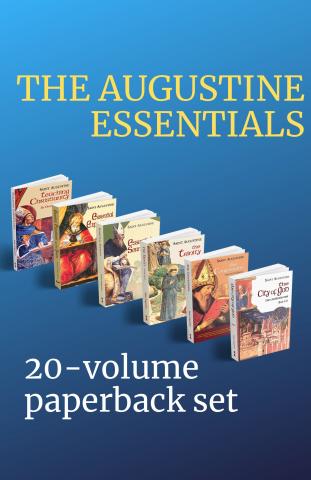
The City of God (1-10)

About the book
Books 1-10 contain Augustine's critique of the Roman religious, political, and intellectual tradition explaining that Rome’s traditional gods were neither able to provide happiness in this life nor in the life to come. Along with his Confessions, The City of God is undoubtedly St. Augustine’s most influential work. In the context of what begins as a lengthy critique of classic Roman religion and a defense of Christianity, Augustine touches upon numerous topics, including the role of grace, the original state of humanity, the possibility of waging a just war, the ideal form of government, and the nature of heaven and hell. But his major concern is the difference between the City of God and the City of Man – one built on love of God, the other on love of self. One cannot but be moved and impressed by the author’s breadth of interest and penetrating intelligence. For all those who are interested in the greatest classics of Christian antiquity, The City of God is indispensible.
This long-awaited translation by William Babcock is published in two volumes, with an introduction and annotation that make Augustine’s monumental work approachable.
Endorsements
City of God is the longest text centered on a single argument to have survived from Greco-Roman antiquity. The challenges of translating such a work arise not just from the brute size of the task, but also from the variety of topics Augustine treats, the complexity of his Latin, and the intricacy of his argument. It is thus no small accomplishment—and service—that William Babcock has rendered Augustine’s prose with such skill, vibrancy, and verve. This new translation will deservedly become the standard for many years to come.










